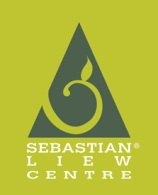How to ‘survive’ the festive season?
With the onset of the Chinese New Year season, the ‘sin’ of gluttony is here once again. Our affluent lifestyle turns every festive season into an overindulgence and gluttony affair.
I am not implying that we should not enjoy ourselves with nice food. The real problem is overeating. As mentioned in my book Leaf to Life, moderation is the first key to good health. Perhaps the Chinese tradition of eating vegetarian meals on the first day of the New Year is meant to prepare ourselves physically and mentally so that we can set good resolutions for the New Year.
How can we enjoy ourselves and at the same time minimise or be free from all the discomforts and fatigue associated with all the visitations, eating and drinking?
Suggestions stated below may seems troublesome for some of you. However, you will thank me for it when your stomach is ‘happy’ and at the same time enjoy the feast.
First of all, abide by these eating habits –
- Do not drink much water during and immediately after a meal. If you wish, drink water an hour or so after the meal.
- Eat the protein part of the meal first.
- Do not eat heavy protein such as pork, chicken, eggs, and cheese with concentrated starches such as bread, rice,and noodles. When you cannot avoid mixing (as in much of Chinese dining), drink herbal tea such as fennel/galangal to assist in digestion or my Phyto-nzyme 2.5ml in water 15 minutes before a meal. Phyto-nzyme is a herbal combination to digest all – protein, fats, and carbohydrates.
- Do not take dairy-related products with heavy protein such as meat. Milk is a food and not a drink. This is why cheese with oysters is a bad combination.
- Do not eat more than one protein at a single meal. Therefore you are asking for stomach trouble if you eat chicken, fish, and pork all at the same meal. Pork is especially a heavy protein and barbequed meat should be avoided.
- Fat and protein taken together is a poor combination. For example, meat fried in oil.
- Try to avoid sweet and starchy desserts immediately after a large meal of carbohydrates such as rice, noodles and concentrated protein such as fish, eggs, chicken and pork and beef. However, if you need to eat in this manner, take them with digestive herbs.
- Eat fruits as a separate meal and not together with the main meal
- Don’t eat too fast; chew your food. Don’t use your smartphone and eat at the same time.
- Laughing and singing after meals is good for digestion.
For further tips on digestion, read the book Leaf to Life, available in Sebastian Liew Centre.


